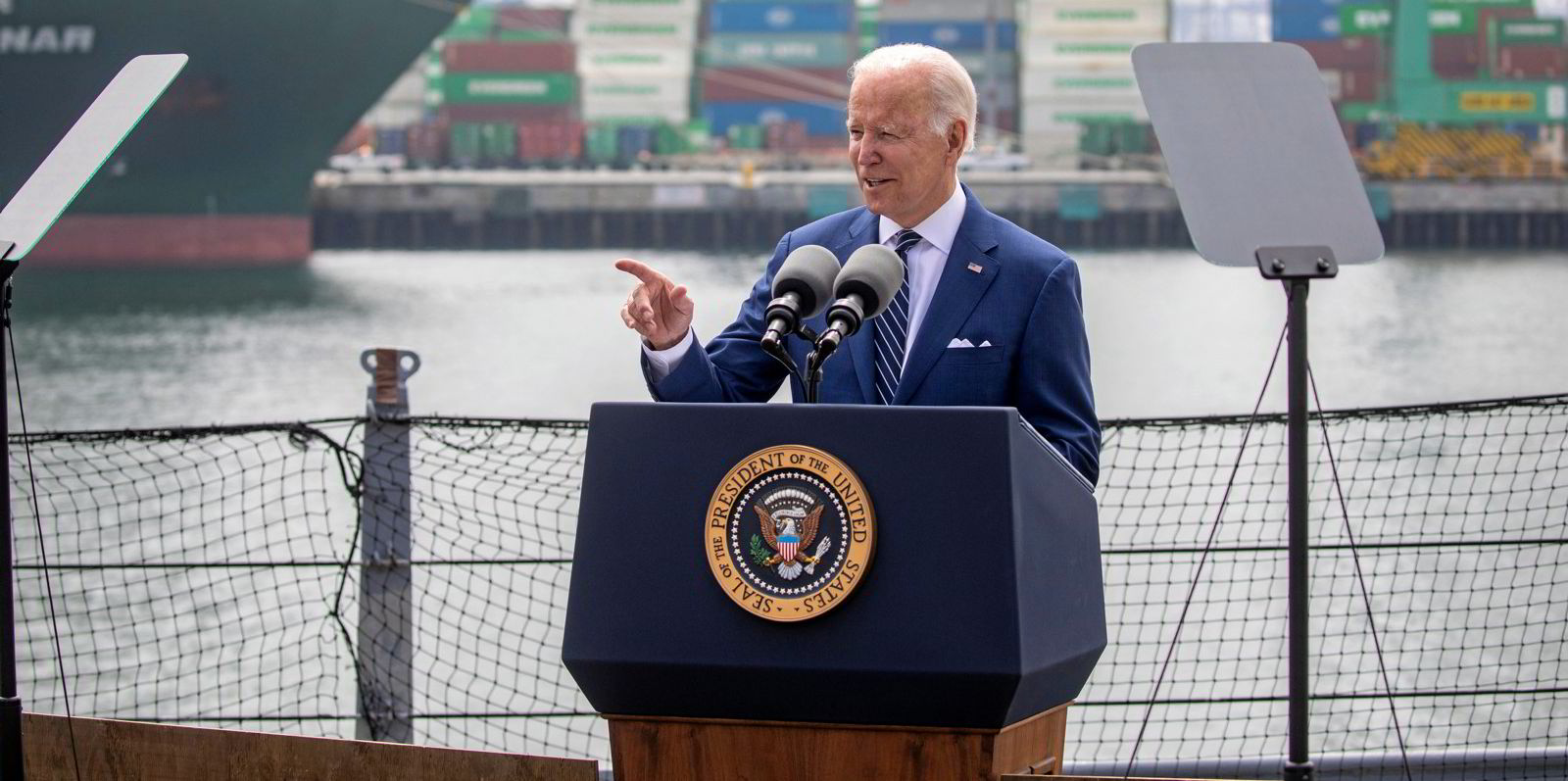Shippers using US terminals to import and export containers have more reason to make sure deliveries remain on time.
Liner operators are charging the highest demurrage and detention fees in the world at five key US ports, according to a report by Container xChange.
The charges accrue for every day that a container is delayed from getting onto or off of a ship beyond a given number of “free days” provided by liner operators. Demurrage focuses on the number of days that a container is held up at a terminal, while detention has to do with how long a box is delayed on a truck.
The new data from the German company, a digital exchange for container sales and leases, comes amid growing scrutiny of the fees in the US, with critics extending all the way to the White House.
Container xChange said the Port Authority of New York and New Jersey has the highest average charge of $3,182 per day two weeks after cargo arrives at a port or is discharged from the vessel, according to the report.
California’s Port of Long Beach came in second with an average fee of $2,730 per day, followed by the ports of Los Angles at $2,673 per day, Oakland at $2,325 per day and Savannah at $2,210 per day.
The Port of Taiwan came in a distant sixth place at $1,329 per day, while the average fee charged at the Port of Hong Kong was $1,029 per day.
The remaining 53 ports on the list all had average charges below $1,000 per day. Liner operators levied the lowest average fee at South Korea’s Port of Busan.
US President Joe Biden signed the Ocean Shipping Reform Act into law in June to give the Federal Maritime Commission the power to act more assertively on the fees, but they still remain high compared to pre-pandemic levels, Container xChange noted.
“US agricultural shippers have been particularly outspoken about their inability to find affordable empty containers for exports,” co-founder Christian Roeloffs said in a statement.
“But importers have been equally outraged by what many believe has been profiteering on D&D [detention and demurrage] charges by container lines.”
The act also shifts the burden of proof for the reasonableness of fees to ocean carriers instead of shippers.
Average charges by ports worldwide have fallen 26% so far this year to $664 per container, but they are still 12% higher than before Covid-19, Container xChange said.
Shippers may be able to get around the charges by using their own containers, but using “common sense” would be the best way to avoid them, said Container xChange chief executive and co-founder Johannes Schlingmeier.
“Better planning by all supply chain partners and better communication between logistics partners and stakeholders can help reduce liability and exposure.”
Read more
- Fed minutes show how supply chain woes weighed on inflation outlook
- HMM and Yang Ming in firing line of US shippers’ collusion charges
- Robert Uggla hits back at Biden in US box shipping broadside
- Despite shipping’s protests, Biden signs Ocean Shipping Reform Act
- Container lines under the cosh as Biden lashes out




